Benedikt Büchel, M.A.
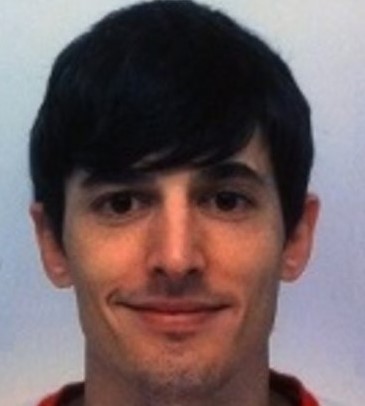
Benedikt Büchel, M.A.
Politikwissenschaft, Universität EdinburghBefore starting a Ph.D. in Political Theory at the University of Edinburgh, Benedikt Buechel took an M.A. in International Studies at Seoul National University, and a B.A. in Philosophy and Business Studies at the University of Mannheim. In 2012, he was an exchange student at the Kyoto University of Foreign Studies. Since 2019, Benedikt has been an associate member of the “European Network on Statelessness” and a co-chair of the “Normative Theory of Immigration Working Group” which is an international collective of scholars working at the intersections of migration studies, policy studies, and political theory. Moreover, in 2017, he joined the “Citizens, Nations and Migration Network” that brings together over 150 researchers from across the University of Edinburgh as well as people working in policy, the third sector and advocacy.
Giacomo Croci, M.A.

Giacomo Croci, M.A.
Philosophie, Frei Universität BerlinGiacomo Croci earned his B.A. in Philosophy (2010) in Milan, before he moved to Berlin and completed his M.A. in Philosophy in 2014. In 2015, he started working on his doctoral dissertation on Classical German Philosophy, Subjectivity and Temporality Theories at the Freie Universität Berlin, where he also teaches. He works occasionally in cultural journalism.
Dr. Stefan Endler

Dr. Stefan Endler
Informatik & Sportwissenschaft, Johannes Gutenberg-Universität MainzStefan Endler studied Computer Science and Sport Science at the Universities of Mainz and Darmstadt and completed his master thesis successfully in 2008. He completed his interdisciplinary doctoral thesis on the adaptation of the meta-model PerPot to endurance oriented running to optimize training an competition in 2013. Since 2008 he works as a lecturer, research and advisor at the Department of Computer Science and partially at the Department of Sport Science at Johannes Gutenberg-University Mainz. He teaches several courses, e.g. in introduction to programming and design patterns. Guided by his enthusiasm for university teaching, he is very motivated to share his experiences in the cooperation with the students and thereby support them in developing their academic research and writing skills.
Prof. Roman Graf

Prof. Roman Graf
Institut für Komparatistik und Deutsches Institut, Middlebury CollegeRoman Graf is Professor of German and Comparative Literature at Middlebury College. In his many years at the College he has served as Associate Dean of the Faculty, Associate Provost for Institutional Diversity, Dean of Diversity, Department Chair of German and Director of Comparative Literature. His academic pursuits and publications focus on 18th-Century Literature, Literary Theory, Language Pedagogy, and Social Justice Education.
Dr. Michaela Haase
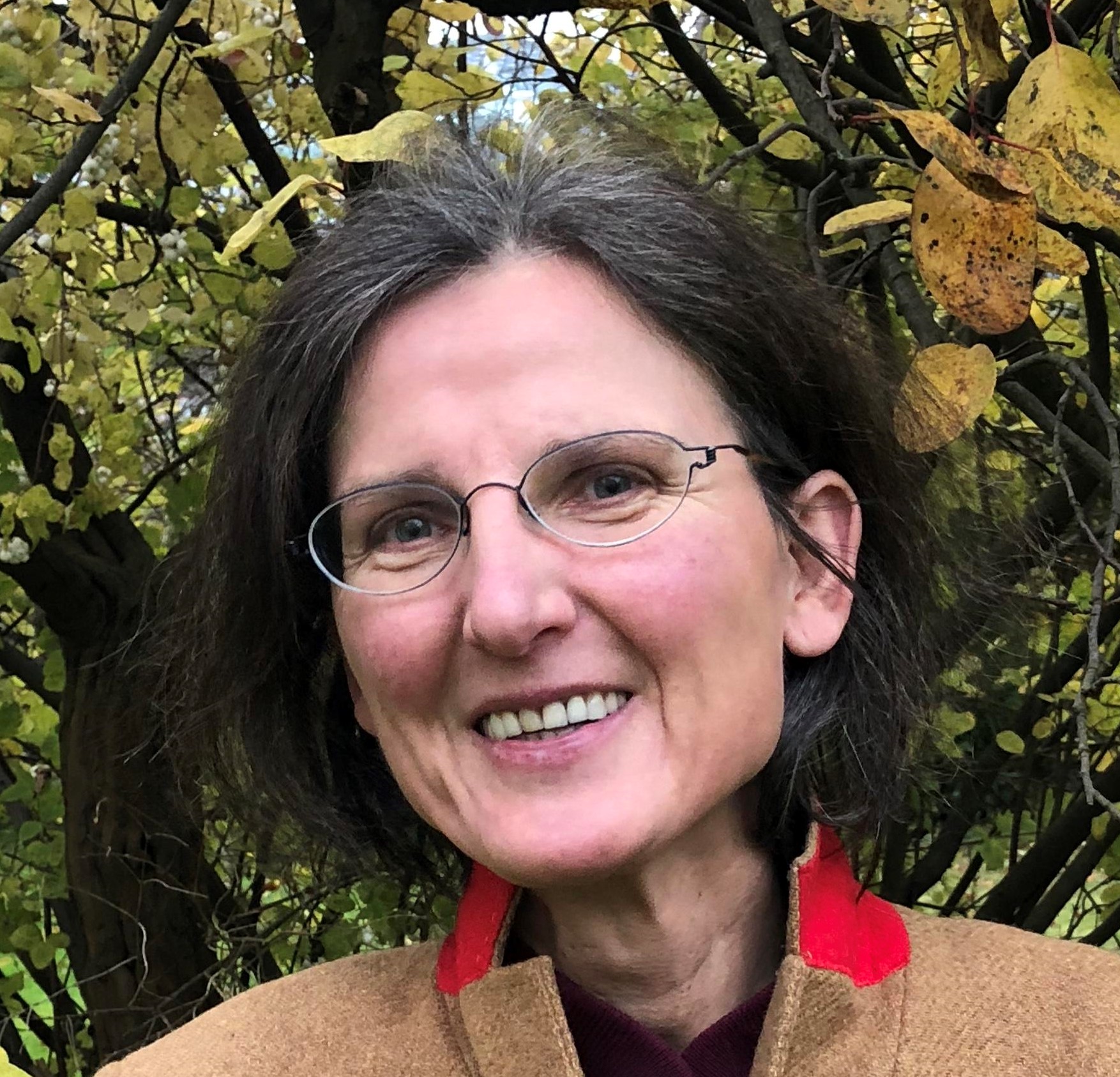
Dr. Michaela Haase
Wirtschaftswissenschaften, Freie Universität BerlinPD Dr. Michaela Haase is lecturer and head of a DFG project at Freie Universität Berlin, School of Business and Economics, Marketing-Department.
Viktor Jaeschke, M.A.
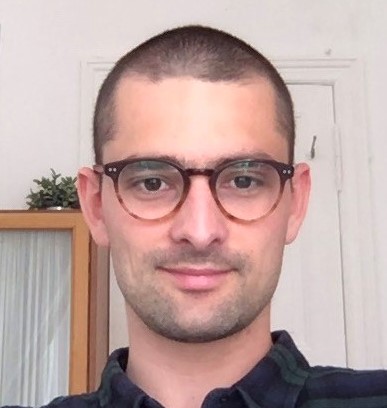
Viktor Jaeschke, M.A.
Historisches Institut, Universität PotsdamVictor Jaeschke studied History and Political Science in Bonn with study abroad semesters in Prague and St. Andrews (Scottland) before he went to Potsdam to work on his PhD and join the History Department focussing on History of the 19th and 20th centuries. His dissertation analyzes the recent history of European Integration with a special focus on the debate surrounding the foundation of a European Union between 1986 - 1992 from a German-French-British Perspective.
Nina Jehle, M.A.

Nina Jehle, M.A.
Deutsch als Fremdsprache, Johannes Gutenberg Universität MainzNina Jehle absolvierte ihren Master „Deutsch als Fremd- und Zweitsprache“ an der Johannes Gutenberg-Universität in Mainz. Neben Lehrtätigkeiten im Bereich DaZ und Fachsprache Medizin war sie mehrere Jahre als Dozentin für DaF im Ausland tätig. Des Weiteren ist sie lizenzierte Prüferin und nimmt u.a. regelmäßig die DTZ-Prüfung ab. Darüber hinaus ist sie als Online-Tutorin und Schulungsreferentin im Bereich Digitales Lernen aktiv.
Bastian Knautz, M.A.

Bastian Knautz, M.A.
Neueste Geschichte, Johannes Gutenberg Universität MainzBastian Knautz studied Geography, Protestant Theology and History at the Universities of Siegen and Mainz and completed his studies successfully in 2014. Since 2016 he works as a lecturer and research assistant at the Department of Contemporary History at Johannes Gutenberg-University Mainz, where, like at the Eberhard Karls University of Tübingen, he teaches courses in the history of the European Union and the contemporary political history of Germany and Great Britain. His interdisciplinary and international doctoral thesis on the genesis of the Single European Act, which he is about to complete in 2020, gave him the opportunity to study and work for several months in France, Great Britain, Belgium and Italy, where he got in touch with a wide range of research cultures and institutes. Guided by his enthusiasm for university teaching, he is very motivated to share his experiences in the cooperation with the students and thereby support them in developing their academic research and writing skills.
Prof. Bettina Matthias
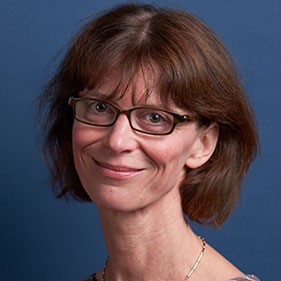
Prof. Bettina Matthias
Deutsches Institut, Middlebury CollegeBettina Matthias holds an M.A. from the Universität Hamburg (French, German) and a Ph.D. in German Literature from the University of Washington (Seattle). She joined Middlebury’s German Department in 1999, received tenure in 2006 and became full professor in 2010. She has published books and articles on Arthur Schnitzler, early twentieth century German and Austrian literature and culture (hotel studies), and on theater-in-education. Her second research and artistic focus as a classically trained pianist is on vocal music. Since 2000, she has been on the faculty for the German Language School’s special program “German for Singers” and has directed the program since 2010. She has also written a special beginning German textbook for the program. Ms Matthias is also the founder and director of the German Theater Group at Middlebury, the co-director of the German Language School’s opera project, and she has directed over 30 plays and operas over the past 14 years. In 2014, she was appointed the German Summer School’s new director.
Dr. Fabian Müller
Dr. Fabian Müller
Mathematik, ZbMathDr. Fabian Müller studied Mathematics and Computer Science at Humboldt University Berlin. His academic focus lies in Algebraic Geometry and the study of moduli spaces of curves. After completing his doctoral studies in 2014, he started working at FIZ Karlsruhe, an institute of the German Leibniz Association, which comprises close to 100 non-university institutions for research and scientific services. There he coordinates development efforts for zbMATH, an abstracting and reviewing service for pure and applied mathematics.
Dr. Pia Nordblom
Dr. Pia Nordblom
Zeitgeschichte, Johannes Gutenberg UniversitätDr. Miriam Esther Owesle

Dr. Miriam Esther Owesle
Kunstgeschichte, Guthmann Akademie, BerlinArt historian Miriam-Esther Owesle earned her Ph.D. after studying art history, German literature and theatre studies at Freie Universität Berlin. She received her doctorate in art history with a thesis about the German impressionist painter Franz Skarbina (1849-1910). In her research she especially focuses on subjects concerning classic modern art and architecture and she is specialized in Berlin culture around 1900. As scientific associate Miriam-Esther Owesle worked for museums, galleries and publishing houses and in the recent past she was board member of the FONTE foundation for young academics, lecturer at FU Berlin and guest lecturer at Middlebury College. As an author and editor she has worked on many book publications. In 2019 for example she published and wrote Mimen, Musen und Memoiren – Illustre Gäste in Neu-Cladow: a book about an important chapter of German culture mirroring in the biographies of Berlin artists in the years around the First World War. As curator of the exhibition Sehnsucht nach Idylle – Max Liebermann und die Maler am Wannsee which took place in the Liebermann Villa from October 2019 to February 2020 she published the exhibition catalogue for the museum. Currently Miriam-Esther Owesle is manager and research director of the Guthmann Akademie gUG (haftungsbeschränkt), a teaching and research institution which was founded by her in 2015.
Dr. Ingo Peters
Dr. Ingo Peters
Politikwissenschaft, Freie Universität BerlinProf. Birger Petersen
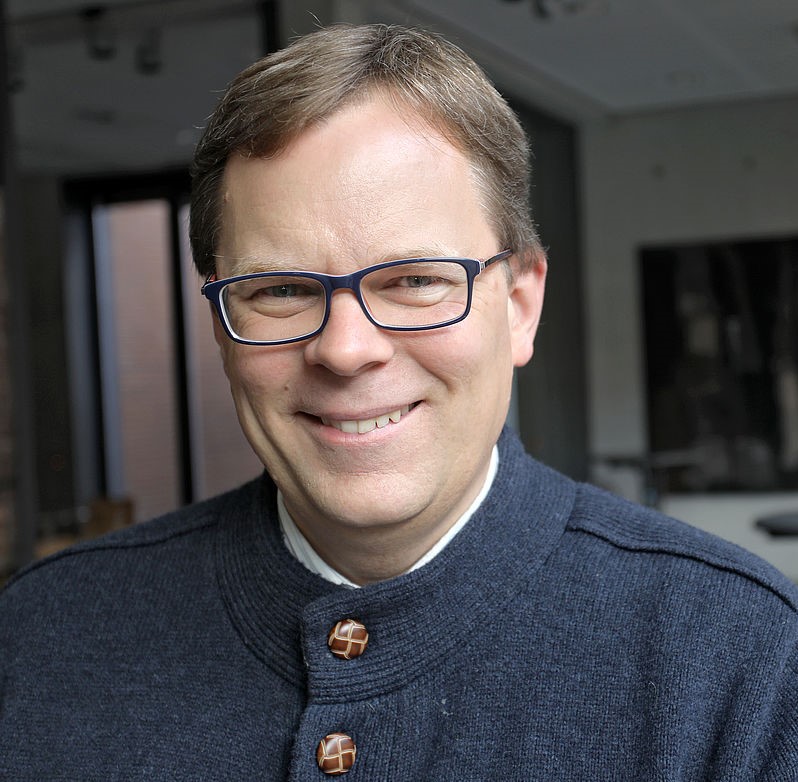
Prof. Birger Petersen
Musiktheorie, Johannes Gutenberg Universität Mainz(*1972) studied music theory, composition, musicology, theology and philosophy in Lübeck and Kiel; in 2001 he received his PhD at Kiel University. In addition to his teaching activities in Lübeck, Bremen, Herford, Greifswald and Osnabrück, Birger Petersen was an organist in Eutin. He taught at the Rostock University of Music and Drama (2008 appointment as professor); since 2011 university professor for music theory at the Johannes Gutenberg University in Mainz. Birger Petersen is Senior Fellow of the Gutenberg Academy and was Vice-Rector in 2014 and Rector of the School of Music Mainz from 2015 to 2017. In 2017/2018 he worked as a Senior Fellow at the Alfried Krupp Wissenschaftskolleg Greifswald.
Narges Roshan, M.A.
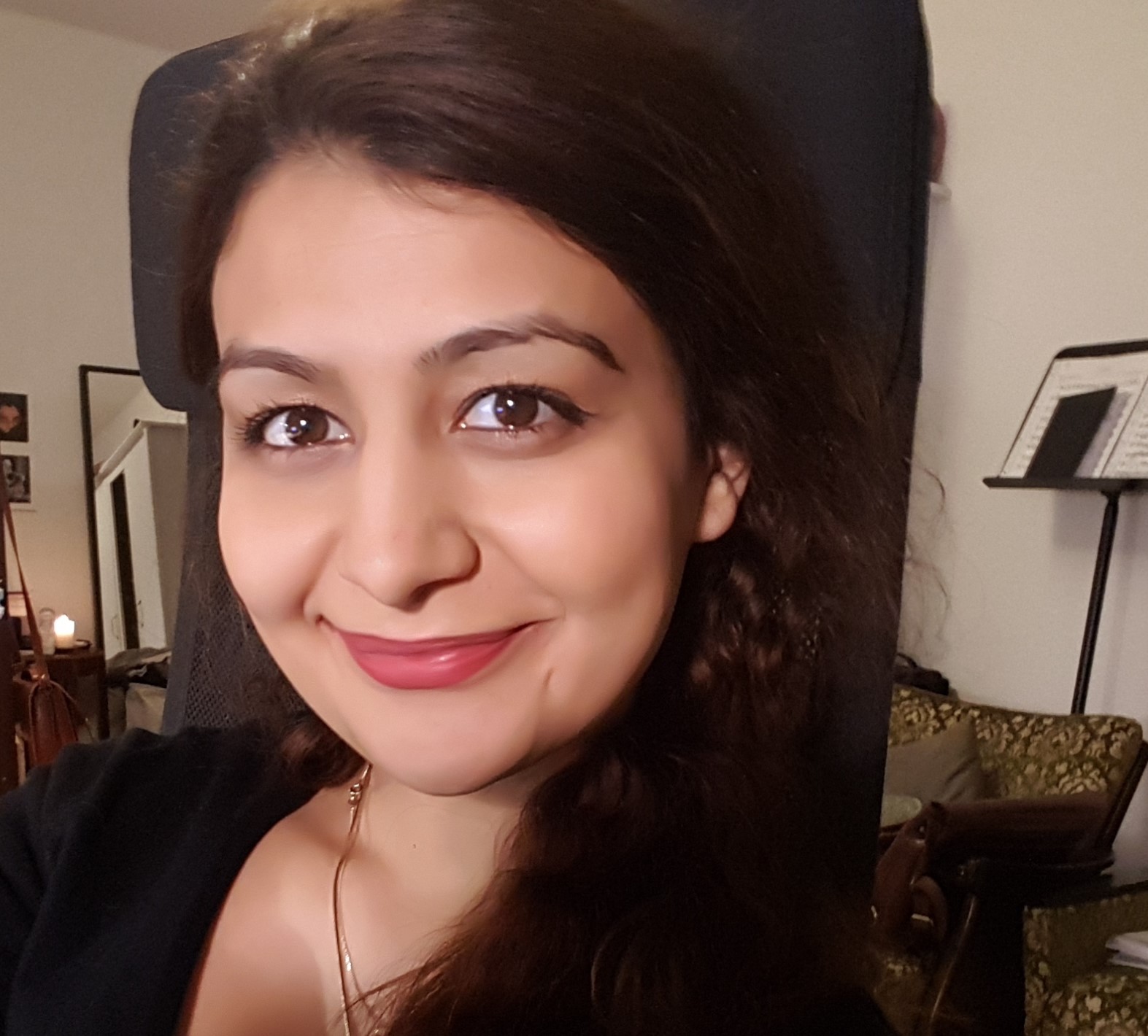
Narges Roshan, M.A.
Deutsch als Fremdsprache, Bard College BerlinNarges Roshan holds a B.A. in German Philology and Literature and Spanish at Albert-Ludwigs-Universität Freiburg. She was working as a DAAD Language Asssistant in Buenos Aires. At Freie Universität Berlin she earned two Master's Degrees: M.A. in German Literature and M.A. in German as a Foreign Language. Since 2016 she has been teaching German at Bard College Berlin and is currently working on her Dissertation Project: Narrative Competence as a Bridge between Homileic and Institutional Discourse.
Theresa Schweden, M.A.

Theresea Schweden, M.A.
Sprachwissenschaft, Universität MünsterFrom 2010 to 2017, Theresa Schweden studied German Studies (specializing in linguistics) and British Studies at the University of Mainz. From 2014 to 2017 she worked as research assistant with the projects “Deutscher Familiennamenatlas” (“German Surname Atlas”) and “Das Anna und ihr Hund: Weibliche Rufnamen im Neutrum” at the University of Mainz and the “Institut für Geschichtliche Landeskunde” in Mainz. From 2016 to 2018 she was research fellow at the University of Freiburg and worked at “Digitales Familiennamenwörterbuch Deutschlands” (“Digital Surname Dictionary”) in Mainz. Since May 2018, she is a research fellow at the University of Münster and writes her PhD-Thesis about “Grammar and Sociopragmatics of Unofficial Dialectal Names for Persons” at the University of Mainz. In her research, she is interested is dialectology, morphology, onomastics and sociolinguistics specializing in qualitative research methods and survey studies, and also takes social historic aspects into account.
Dr. Octavio Paniagua Taboada
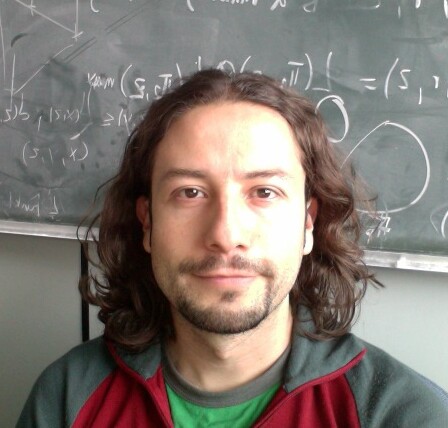
Dr. Octavio Paniagua Taboada
Mathematik, ZBMathOctavio Paniagua Taboada is editor for zbMATH at the Berlin office of FIZ Karlsruhe. He received a bachelor's degree and a Master's in mathematics from the National Autonomous University of Mexico (UNAM) and a PhD in mathematics from the Université Paris-Sud XI, Orsay, France. He was Postdoctoral fellow at the University of Göttingen and at the University of Marburg. He has been an editor of zbMATH since January 2014 and of the EMS Newsletter since 2018.
Dr. Jan Turinski

Dr. Jan Turinski
Neuere Geschichte, Bistum MainzDr. Jan Turinski studierte in Mainz Mittlere und Neure Geschichte, Alte Geschichte und Politikwissenschaft. Nach dem Abschluss als Magister Artium war er wissenschaftlicher Angestellter am Arbeitsbereich Neuere Geschichte (Prof. Dr. Matthias Schnettger). Zu seinen Forschungsschwerpunkten gehören die Geschichte des Alten Reichs, geistliche Staatlichkeit und die Geschichte der Reichskirche, insbesondere des (Erz-)Bistums Mainz sowie frühneuzeitliche Leichenpredigten als geschichtswissenschaftliche Quellen. 2018 wurde er mit einer Studie zur Erinnerungs- und Sepulkralkultur der geistlichen Kurfürsten im 17. und 18. Jahrhundert zum Dr. phil. promoviert. Seit 2019 ist er als Bildungsreferent im Bistum Mainz tätig und leitet das Katholische Bildungswerk Bergstraße/Odenwald.